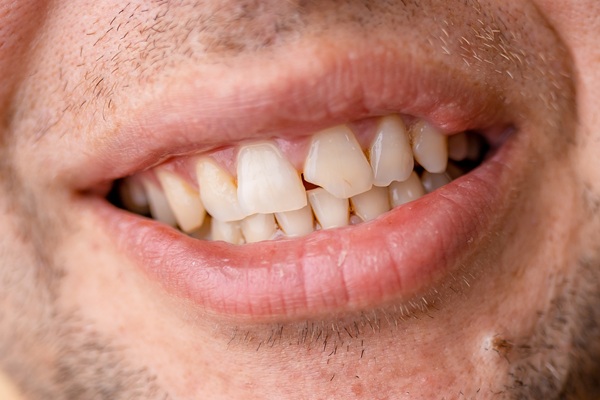 If you are getting dentures, you might want to learn how to eat and speak with them.
If you are getting dentures, you might want to learn how to eat and speak with them.
The good news is there are a few ways you can do that. It just takes some patience. Within no time, you will be speaking and eating, just like usual.
Eating with the false teeth
It takes some time to get used to false teeth. However, a few strategies can help patients have more self-esteem with their teeth. Chewing might cause food to taste different, and eating might feel different. It takes some time for the brain to adjust to the new sensation. The foreign feeling often overpowers any messages from the taste buds, but it just takes some getting used to.
It might be hard to sense hot drinks and foods since the teeth play a large role in that sensation. Patients should take smaller bites at first to get accustomed to the feeling. Cut the food into smaller pieces at first and check the temperature. Then it is possible to move on to larger bites.
Chewing the food evenly on both sides of the mouth is critical. That way, there will be equal pressure on the false teeth, reducing the risk of sores in the mouth. Patients can also eat softer foods, such as cooked vegetables, eggs, and meat cut into small pieces. Pasta is another right choice.
Learning how to speak with dentures
When speaking, new denture wearers can determine the troublesome words. That might include the S and F sounds. Patients can look online for tongue twisters to practice the difficult sounds. Another tip is to read out loud in front of a mirror. That allows a patient to practice a broad range of sounds and master them once more. It is essential to be patient and speak slowly to relax.
Patients can try biting on the teeth and swallowing before speaking. That will reduce any shifting of the false teeth. If the teeth do move when speaking, it is critical to put them back in the right location. That way, a patient can talk easier. Denture adhesive might reduce shifting, as well. Many types keep the teeth in place all day, so patients do not need to worry about them moving around.
Finally, patients should speak at the right volume. It might seem like a patient is speaking louder than average at first. The mouth’s anatomy changes with dentures, and it also alters how sound moves out. That is more noticeable to the patient than others nearby. But over time, the patient will start to sound more normal when speaking.
Choose the right dentures today
When you first get dentures, you will need to adjust to them for a time. The good news is there are some ways to make the process easier. If you want to know more about dentures, your dentist can help you learn about them. Making an appointment today is your first step.
Recent Posts
A tooth replacement procedure is vital if you are missing teeth. You will be happy to know that there are multiple options available to restore your smile. If you are missing a few or many teeth but have healthy natural teeth remaining, partial dentures make a lot of sense. This solution can improve your appearance…
There are multiple denture options if you are looking to replace missing teeth. These solutions can help prevent many unwanted side effects of tooth loss, leading to better oral and overall health.The loss of permanent teeth can happen for various reasons, from severe tooth decay and gum disease to traumatic injuries or underlying health conditions.…
Adjusting to new dentures can take a few weeks, but once a patient has adjusted, it is easier to eat and smile with confidence. For those who have had tooth loss corrected through dentures, it can take some time before things feel normal inside the mouth. Dentures feel and function differently than natural teeth. They…


